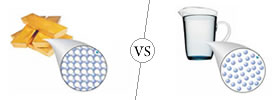Difference between Virus and Spyware
Key Difference: Viruses are programs or codes that attach themselves to files and programs and run inside the computer without the knowledge of the user. Spyware, true to its name is software that spies on shopping and browsing habits of users.
 Virus and spyware are two different types of malware that can infect a user computer. There are many different types of malware that exist and are created for complete different purposes. A virus is a code or program that attaches itself to files and programs and can either run without the knowledge of the user or cause the program to crash. Spyware differs and does what it name sugges, it spies on the user habits.
Virus and spyware are two different types of malware that can infect a user computer. There are many different types of malware that exist and are created for complete different purposes. A virus is a code or program that attaches itself to files and programs and can either run without the knowledge of the user or cause the program to crash. Spyware differs and does what it name sugges, it spies on the user habits.
Viruses are programs or codes that attach themselves to files and programs and run inside the computer without the knowledge of the user. The term ‘virus’ has become an umbrella term for all types of malware, which have the ability to replicate itself and does not include adware and spyware. Viruses have been termed as virus because of their characters that are similar to actual viruses. They can attach to a certain hosts, files and programs and then replicate themselves to completely infect the computer. They can also travel via transference of data and files to infect other systems. All computer viruses are man-made. Almost all viruses are attached to an executable files, which requires the user to run the file in order for the virus to infect the system.
There are two types of viruses: Nonresident and Resident. Nonresident viruses, upon execution, immediately start searching for other hosts that can be infected, infect those targets, and finally transfer control to the application program they infected. Resident viruses do not immediately search for hosts and instead loads itself into memory on execution and transfers control to the host program. The main purpose of a virus to infect, alter and damage files. These can also change the name and location of the files and corrupt them to the point that they become unreadable. Computers can be protected by using antivirus and spyware software. In order to remove the virus, infected files can be deleted or the computer can be formatted or restored.
 Spyware, true to its name is software that spies on shopping and browsing habits of users. A spyware that is installed on a computer is considered as a potential threat because it can use personal information by the user and provide them to advertising companies. The software is responsible for gathering information about a person, without the person’s knowledge and sending the information to a third party without the consumer’s content. "Spyware" is mostly classified into four types: system monitors, trojans, adware, and tracking cookies. On its website Microsoft defines ‘spyware’ as, “Spyware is often associated with software that displays advertisements (called adware) or software that tracks personal or sensitive information.”
Spyware, true to its name is software that spies on shopping and browsing habits of users. A spyware that is installed on a computer is considered as a potential threat because it can use personal information by the user and provide them to advertising companies. The software is responsible for gathering information about a person, without the person’s knowledge and sending the information to a third party without the consumer’s content. "Spyware" is mostly classified into four types: system monitors, trojans, adware, and tracking cookies. On its website Microsoft defines ‘spyware’ as, “Spyware is often associated with software that displays advertisements (called adware) or software that tracks personal or sensitive information.”
Spyware is most commonly used to track the user’s interests and then using them for rendering pop-up ads to the user. Some spyware such as keyloggers is installed by companies in order to keep an eye on their employees. Spyware can become malicious when it targets personal information such as social security numbers, credit card numbers, username and passwords. People can detect and remove spyware using free tools that are available online or by installing security programs. Some spyware can also be integrated into shareware and freeware. For installation, spyware uses the loopholes in JavaScript, Internet Explorer and Windows operating system itself.
Image Courtesy: stlcompdocs.com, ww2.laplink.com









Comments
Jamie
Sun, 12/03/2017 - 16:53
Add new comment